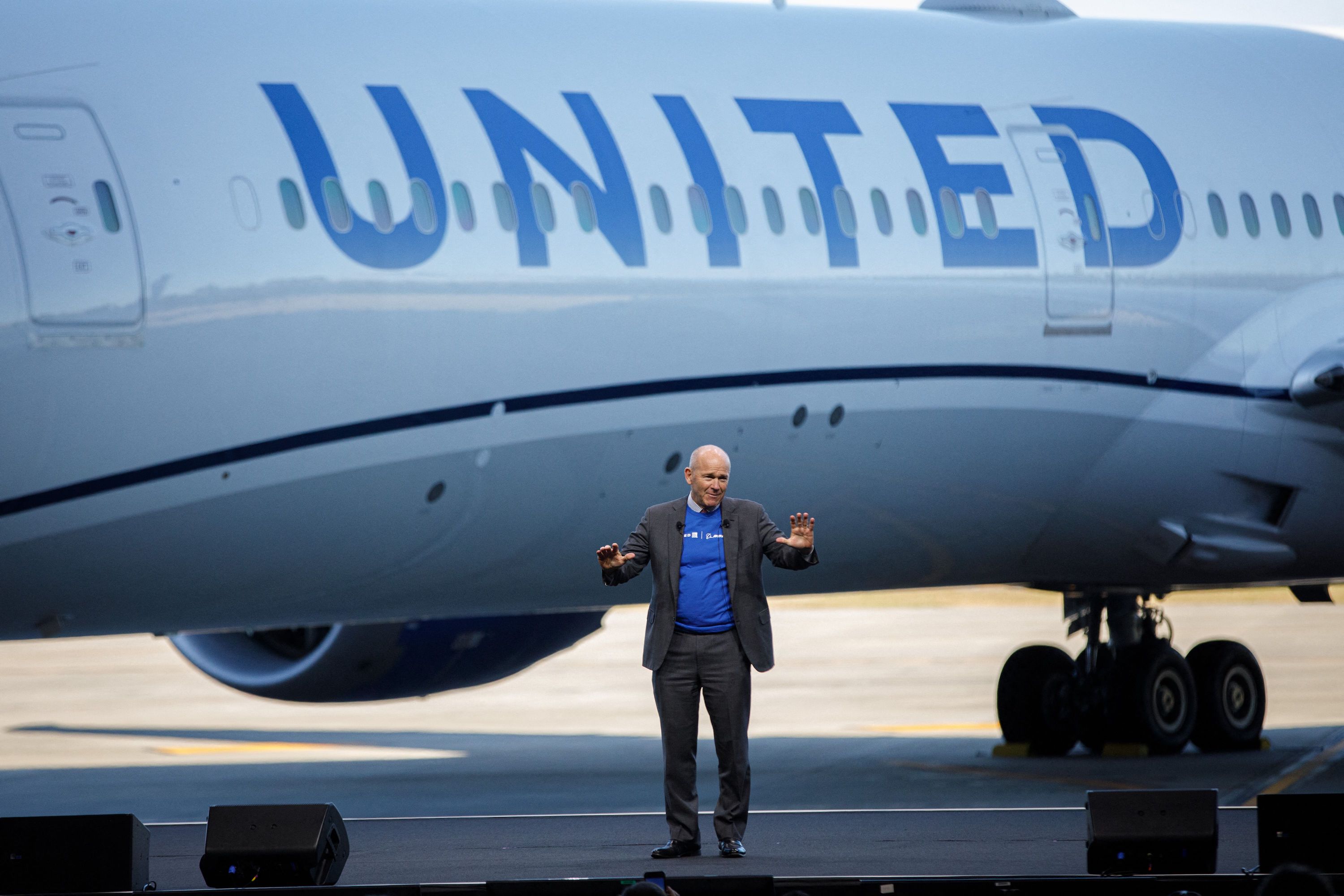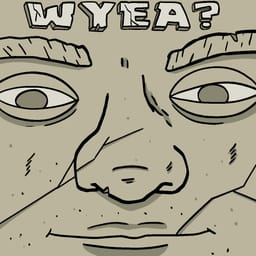On the Dunes
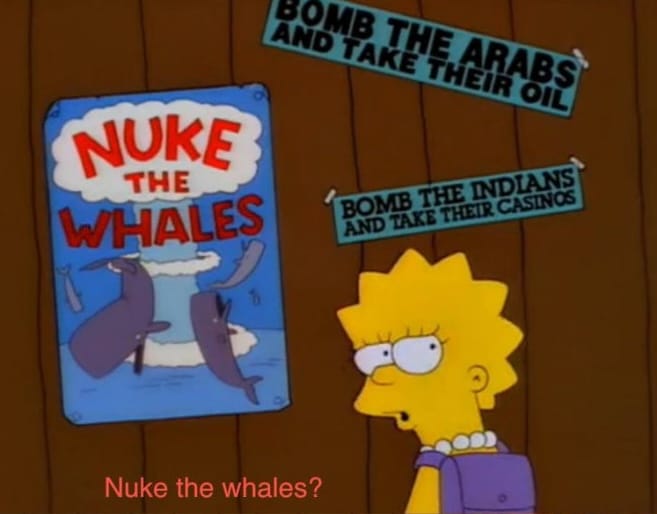
I want to try to write some more partially baked posts. I write a lot of notes to myself about ideas I'm having and then I have an image of wanting them to coalesce more and then pitch to get the work published somewhere, after this did work for me getting a long essay published in Current Affairs in spring '21. But I think there is also a value to a blog where you can put down your thoughts imperfectly and discuss them with others, that the present day Internet is missing. There is a space between rambling to my wife in person or through the Orioles/socialism group chats, and something that is at least baked enough to present to the broader world in whatever numbers happens to show up. I do enjoy the broader audience you can put your ideas in front of in discussions on some reddit forums, even if prison abolitionism doesn't get the "upvotes" on r/baltimore, it's still enjoyable to have a place where people who disagree with you can have to contend with your ideas. Even when the responses are stupid or threatening (the Maryland one has a lot of gun nuts mad about whatever latest gun regulation), they have a kind of enjoyable protection, with your basically-anonymous usernames. With neverending-scroll social media like twitter, it's too easy for your detractors to continue to bother you, while the discussion on reddit is something of a blank slate each new time. And sometimes what feels like spicy anti cop stuff actually does land well.
I made this page in winter '23 but haven't had a post I've wanted to present here yet since the first one about the Moore inauguration. It'll come back with practice, and I'll take a swing here. (It's not the right word to call it a distraction, but my broad sense of wanting to make some kind of collected site for writing and photography after I got back from an architecture-themed trip at the end of September '23 has seemed less worth focusing on with the Gaza crisis that escalated soon afterward and persists.) But, one has to step past the reddit comment level of discourse on some matters.
"Homicide on the Dunes"
I watched the Denis Villeneuve (hereafter "Denis V." and rhyming with Kenny G) film of Dune part one at home on streaming. F&SF is not my genre but maybe I don't even read enough fiction to have genres, and as the sequel film was coming out I decided to read the first book, which has a lot of fans I respect. Then after two films and the book, I went and watched the Lynch film, why not. I didn't watch the doc about how Jodorowsky didn't make a film. (Story details follow about all of these. Well, not Jodorowsky.)
I remember reading someone's take about the first Denis V. film/overall story that the conflict Paul faces is something like 1) become a monster or 2) die. To the extent that there's suspense, it is mainly about what he will choose. But again that's not particularly suspenseful, because if he dies, that's the end of the story. Even with a strong sense that the caper will succeed, there's interest in seeing how it all plays out. And because it's an honest story, it won't resolve into 3) JK, that wasn't actually the choice, he can prevail virtuously. So the continuation of the story as it plays on screen or as you feel how many pages are left in the book, is not about what will happen, but why. As the Oracle says to Neo, you already made the choice, now you have to understand it.
Herbert, Lynch, and Denis V. take three different approaches to the critical moment of the story: when and why Paul decides to drink the Water of Life. Here they are:
Herbert: When Paul reunites with his old friend/trainer Gurney, Gurney thinks Paul's mother Jessica was the traitor responsible for the family's downfall and tries to kill her (before being talked down). Paul, who has many visions of the future, is disturbed by his failure to foresee that Gurney's attempt would happen. The water will help him see the future, and he can't resist that power after this incident. (The incident is not portrayed in either film.)
Lynch: Paul has a vision of the emperor trying to kill everyone on Arrakis and that the guild specifically wants to prevent him from drinking the water so that he will be powerful enough to stop this. He chooses to drink the water to prevent this possible future from happening.
Denis V.: Feyd Rautha starts bombing the northern sietches (caves). Paul, who has been resisting the temptation to go south, drink the water, and declare the holy war, goes to the desert to decide what to do. He perceives a djinn of Jamis, the man he killed to join the tribe, and had visions both before and since the killing, of Jamis not as his enemy but as a friend teaching him the ways of the desert. This time, he asks Jamis, and the spirit advises him to take the water to increase his vision. The film then shows that Jessica is the one speaking this to him as Jamis and disguising herself; so far in the film he'd resisted Jessica's direct counsel that he drink the water. But the disguised Jamis vision, and Paul's lover Chani's statement that "the world has made choices for us," jointly convince him. But it also appears that Chani isn't quite giving him the same advice as Jamis/Jessica, because we next see her arriving at the temple where he's in a coma from the water, irritated at him for having done so and upset at having to take part in reviving him, as a fulfillment of one of the many supposed prophecies about him (that keep happening but she doesn't believe in / resents as the wrong thing for her people, her love for and loyalty to him as an individual aside).
It's interesting that in three versions of one story that share many elements, that the climax is so different each time.
First law of Mentat (words given to the Jamis vision in the first Denis V. film): "A process cannot be understood by stopping it. Understanding must move with the flow of the process, must join it and flow with it."
Paul's father Leto knows that he is being set up in a trap, but he has no better choice than to step into it. (Muad'Dib family commentary: "is it possible [Leto] deliberately sacrificed himself that his son might find a better life?") His enemy, the Baron Harkonnen also knows "He could not help but know" [that it's a trap]. The Baron reflects on his enemy's dilemma with a note of sadness. One thing Paul learns (from a vision earlier in the book, and from drinking the water in the Denis V. film) is that previously unknown to either side, the two enemy houses are now inbred together in the form of his own body: the Baron is Jessica's father. (There's an echo of the first world war's twisted sense as a kind of family dispute between the German cousins on the thrones of both Germany and the UK, that spilled out onto the whole world and killed millions.) So the first thing Paul says to Jessica (in Denis V.) is: We're Harkonnens. We'll survive by being Harkonnens.
You can win, by becoming (/ acknowledging that you already are) the evil thing you set out to defeat. Why then is it worth it to win? "Nuke the whales with the 'family atomics'?"
Of the three climaxes, Lynch's (+ whatever studio meddling) is the most heroic version. It fits that the Harkonnen/Atreides inbreeding doesn't make it into that film. Denis V. goes closer to the dark heart of the story, even as his suggestion that Jessica is fooling Paul doesn't cut as deeply as it being fully Paul's choice, that Paul is long in denial about making.
Some excerpts from Herbert as Paul walks down the "central line of the time storm." Could it have been otherwise?
[Jessica] looked at Paul's face, his eyes--the inward stare. And she knew where she had seen such a look before: pictured in records of disasters--on the faces of children who experienced starvation or terrible injury. The eyes were like pits, mouth a straight line, cheeks indrawn.
The vision made him want to freeze into immobility, but this, too, was action with its consequences.
... he knew that no small thing could deflect the juggernaut. If he died this instant, the thing would go on through his mother and his unborn sister. Nothing less than the deaths of all the troop gathered here and now--himself and his mother included--could stop the thing.
The imperfect vision plagued him. The more he resisted his terrible purpose and fought against the coming of the jihad, the greater the turmoil that wove through his prescience. His entire future was becoming like a river hurtling toward a chasm--the violent nexus beyond which all was fog and clouds.
He had to remain on the central line of the time storm he could see in the future. There would come an instant when it could be unraveled, but only if he were where he could cut the central knot of it.
The Baron says to the Emperor of the Fremen [is it true or not?]: "The women throw their babies at us and hurl themselves onto our knives to open a wedge for their men to attack us. They have no ... no ... decency!"
"Muad'dib ordered battle drums made from his enemies' skins" (Irulan)
Paul could only focus his attention on the inner eye and the gaps visible to him in the time-wall that still lay across his path. Through each gap the jihad raged away down the corridors of the future.
And Paul saw how futile were any efforts of his to change any smallest bit of this. He had thought to oppose the jihad within himself, but the jihad would be. His legions would rage out from Arrakis even without him. They needed only the legend he already had become. He had shown them the way, given them mastery ... A sense of failure pervaded him ...
Every day, if we want, we can look and see evidence from around the world of the "faces of children who experienced starvation or terrible injury." One such moment occurs in the Denis V. film, after the sietch bombing, as a dazed, brown-skinned boy looks around in the cave with blood running down the top of his face. The parallels with present reality made this especially hard to watch. But when Jessica sees this face in Paul (in the book), he's having the vision not of himself as a victim but as the mass murderer.
During the Gaza crisis, I've seen the (former Israeli leader) Golda Meir quotation "we [the Israelis] can never forgive them [the Arabs] for forcing us to kill their children," being shared widely, disturbingly in some cases out of approval with the sentiment. But of course there is no such thing as being forced to kill children. Anyone who insists that there is, could not be more repugnant to me. As a thought experiment instead of an actual situation, I think about it this way: If literally the only choice you have is between killing even one innocent child, or dying yourself, the only honorable choice is to die.
But death ends the story, and we only exist among the living, still turning the pages.
==
Topical
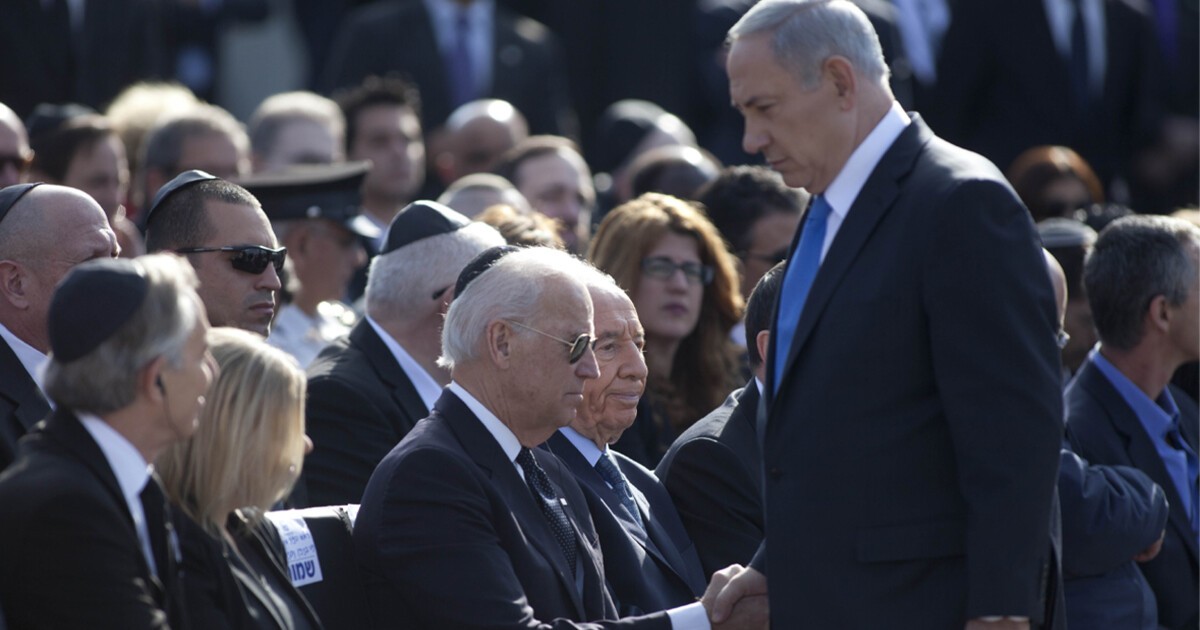
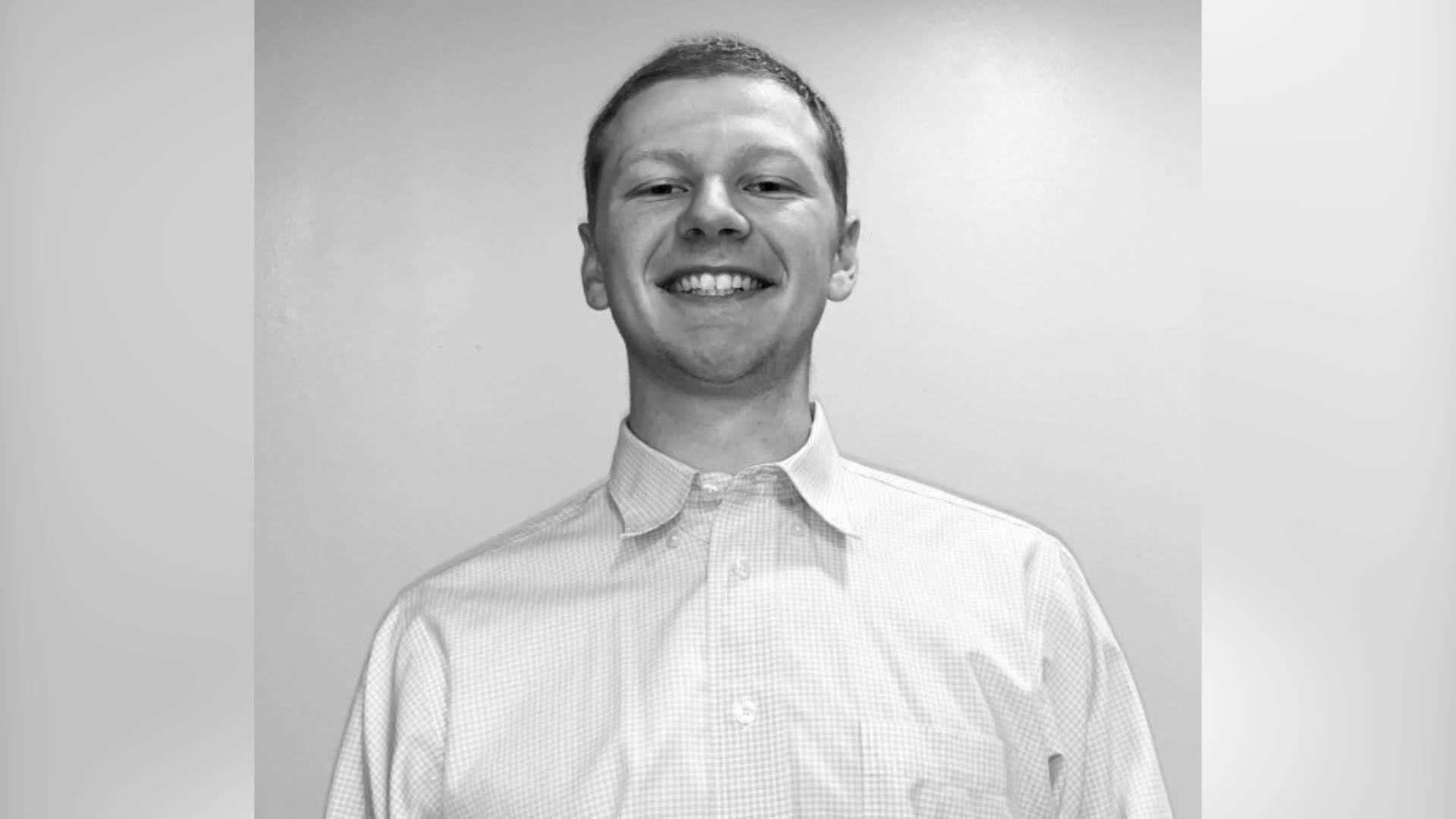
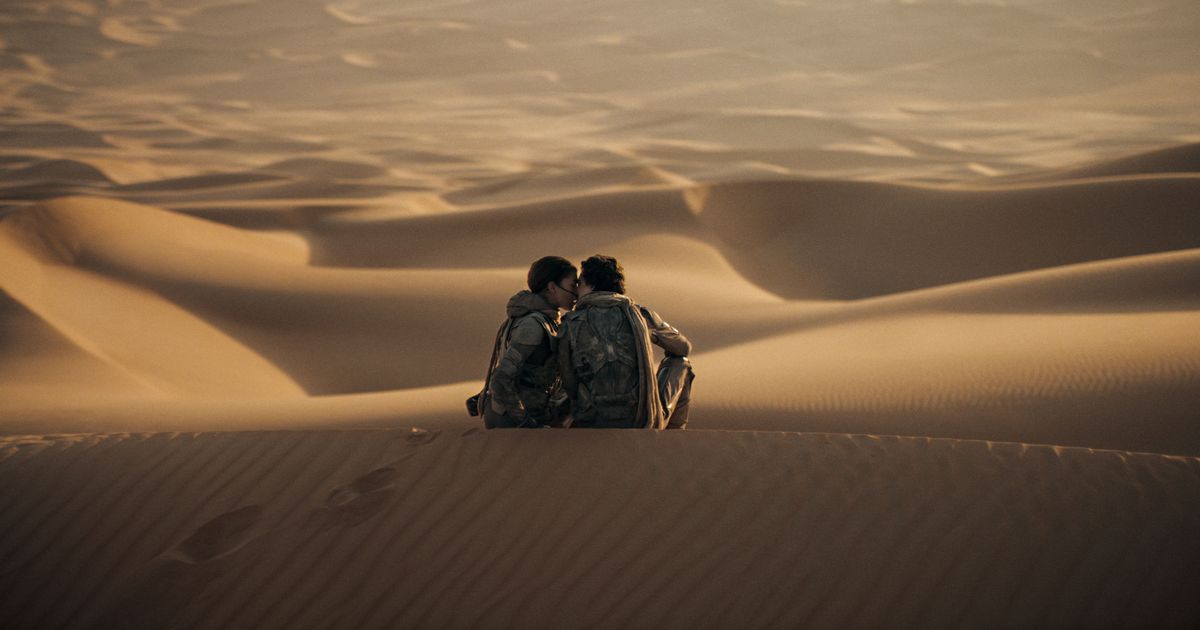

"I’m not sure the movie really effectively communicates how terrible the jihad unleashed by Paul’s assumption of power will be--as I’ve already complained, 'CGI starving-people vision' doesn’t really get across that his decision (or fate) to challenge the emperor will kill billions of people across the imperium, and, in general, given the way the logic of cinema works, it’s hard not to be fully rooting for Paul by the end, even if we get a handful of to-be-sure lines making sure that we know on an intellectual level his victory is not an unmitigated good. Giving us an upset Chani helps convey, even in a minor and shallow way, that this is not a happy ending."

